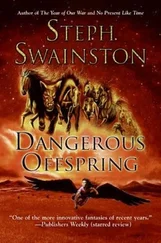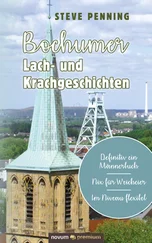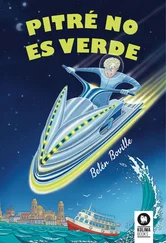In the year 416-a date that every schoolchild knows-galleys from the mainland arrived at our then uninhabited island, and anchored in the mouth of Olio River. During the following day, the settlement of Capharnaum was founded on the northern bank and the mighty galleys were brought upriver and set aflame, a remarkable symbolic act that marked the dawn of our present society.
Why did this flotilla of galleys leave the mainland and put their hope in the creation of a new country? In this book I will argue that it was due to the ingress into the mainland of a swarm of Insects. According to the only manuscript surviving from the Pentadrica, Capelin’s account of the second decade of the fifth century, I maintain that Insects truly existed and were not the symbolic creatures that recently fashionable theories would have us believe. Moreover, they must have been rather larger than the ants of our island. My esteemed colleague Vadigo of Salmagundi has on numerous occasions criticized my belief in Insects. However, my research draws heavily on the precious Capelin manuscript housed in the Amarot library with which, perhaps as it is such a distance from Salmagundi, my colleague does not trouble himself.
The Queen of Pentadrica, Alyss, traveled with her court-a rudimentary senate-from her liberal and enlightened country known as the jewel of the Fivelands, to satisfy her curiosity about reports of the problematic Insects. Capelin, a scrivener at the Pentadrican court, relates that five Insects had appeared suddenly in the vale of northeast Awia and were the subject of much curiosity. Apparently of their own volition the Insects confined themselves in a small area behind a wall. The nearby Awians were observing and throwing logs into the enclosure when hundreds more manifested so suddenly they had to flee for their lives. When Alyss drew close to the boundary the creatures burst out, devouring the Queen and her entire entourage. Insects laid the fields waste, eating the crops and building as vigorously as our own ants. Capelin recorded that more Insects emerged than could ever have fitted inside, but this may be an understandable exaggeration or poetic flourish.
An envoy brought the news of Alyss’s death to her palace and to the King of Morenzia in Litanee. Various of the Morenzian nobility immediately laid claim to the leadership of Pentadrica-that is, the throne.
The crude southern horsemen, the Plainslanders, realized that they could also gain land. We do not know, unfortunately, what a horseman would look like. The Morenzian humans and the horsemen fought over Pentadrican land and many of the Morenzian nobility were killed. One suspects the Pentadricans defending their towns and hamlets could do little against forays from the barbarians beyond their southern borders. Capelin’s harrowing description of the destruction of Strip Linchit village forms the appendix to this book.
The kingdom of Awia tried to organize resistance to the Insects-presumably gathering young men whose hunting parties were now asked to net the maneaters. We know for certain that thousands of Awians were displaced southward and determined to settle the north of Pentadrica. Historians following Vadigo have stated that from this point the story seems credible, but have given no criteria for their method of determining between reality and allegory.
Awians and Pentadricans both appealed to San for help. This mythological figure was supposed to have been given eternal life by god before it left the world; to advise the world on god’s behalf. San seems to have been an itinerant sage who objectively advised all the courts of the five countries involved and was respected by them. Capelin assumes his reader knows the identity of San and gives no evidence to support immortality. It was probably a rumor arising around an extremely adroit and possibly aged wise man as it is not possible to credit the idea that he was wandering the world for four hundred years before the Insects appeared.
Some theoreticians postulate that San was god in a different guise; some hold that the appearance of Insects marked the return of god, or that god intended Insects to triumph over people and form the next phase of creation. The argument that there is a god at all is beyond the scope of this book.
It is self-evident that San realized the Insects were the greatest threat since he attempted to organize bands to hunt them. If Insects were some sort of metaphor for decadence and never in- tended to be understood literally as animals, how are we to explain the decision of San as recorded in Capelin’s document? It is the best evidence available that Insects, whatever they were, were tangible. San blamed the Morenzian nobles for the civil war and, although some accompanied him into Awia, fighting continued in the Pentadrica. The Pentadrica collapsed completely in the year 415.
The intensity of the skirmishes seems far-fetched to our imagination, but it is important to remember that in and around the fifth century all the land was owned by individuals dependent upon it for their survival. The pre-Senate times were indeed difficult. A further reason why the settlers founded a senate was simple horror at the fact that all this confusion resulted from the death of one woman, the beautiful Alyss.
To bring peace, San divided up the Pentadrica. From being the center of the Fivelands, its territories were distributed between Awia, the Plainslands and the new republic of Morenzia. Those three expanded countries were united and hostilities ceased. San proposed to lead volunteers from them against the Insects. In return, the several leaders met in Alyss’s empty palace and agreed to bequeath the building to San and proclaim him Emperor.
Now we come to the most exciting part of Capelin’s record. From all countries came a host of people who were appalled by the thought of one man, however wise, holding sway over the world. They met at the coast and numbered about one thousand. Awian refugees collaborated readily with men and women loyal to the Pentadrica who could not accept being subjected to the rule of savage horsemen and the greedy nobles who had so recently ravaged their land. They agreed to leave for an island well known to the Pentadricans. Under cover of the summer night, they escaped the mainland in a flotilla of galleys.
Today, if one strolls along the sandy bank of the Olio, it takes little imagination to envisage the travel-scarred galleys rowing upriver, their single square sails hanging stained and torn from the tribulations of the long crossing. Indeed, the site of their landing is numinous and sacrosanct, as if after their long voyage the ghosts of those tired but eager fugitives still frequent the beach.
Their outstanding achievements in founding the Senate and the colony of Capharnaum brought us to where we are today. Under the wisdom of a senatorial government, the colony thrived. Capharnaum grew rapidly and in the following century was embellished to its present radiance which, with the particulars of the naissance of Farrago community, will be the subject of my next chapter.
I turned the page, and almost dropped the book in astonishment. There was a portrait of the Emperor San. I recognized him instantly in the full-page illustration, although he was not in the Throne Room, seated on his dais in front of the electrum sunburst. He was sitting on a rock, and he wore breeches. A black and white cloak around his shoulders was secured with annular brooches. Across his knees, his ridged and wiry hands held a boar spear. The backdrop was a verdant plain of fields and, dotted into the distance, towns that were tiny collections of beautiful domes and stepped-gable houses. They reminded me of the broken domes of old Awia that project from the Paperlands; Awia has not built domes for nearly two thousand years. When Insects forced their country southward, Awians deliberately changed the style of their architecture to symbolize a new start and express their defiance.
Читать дальше












